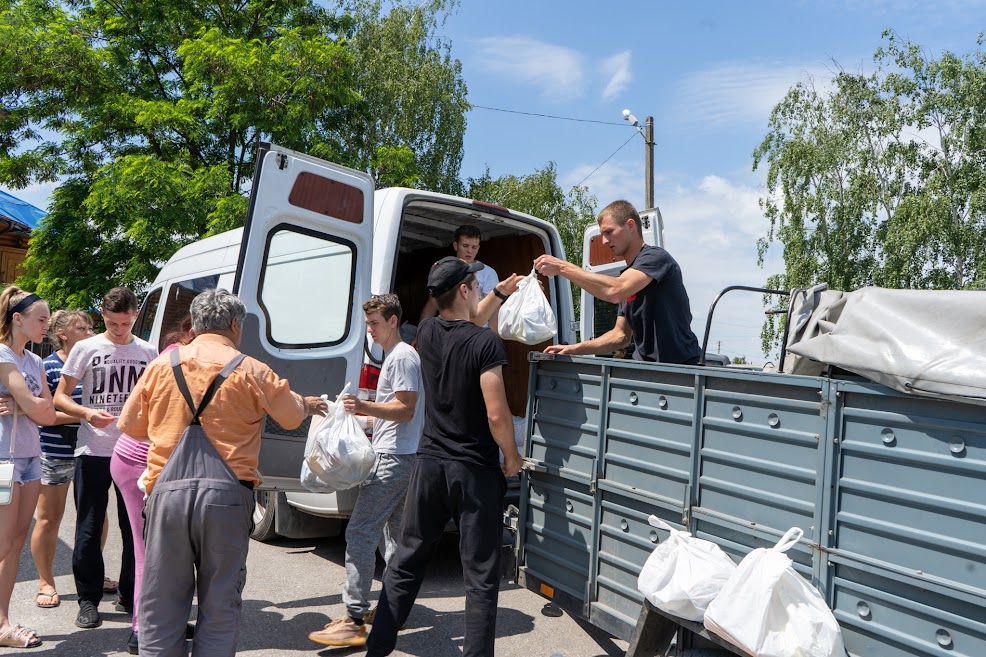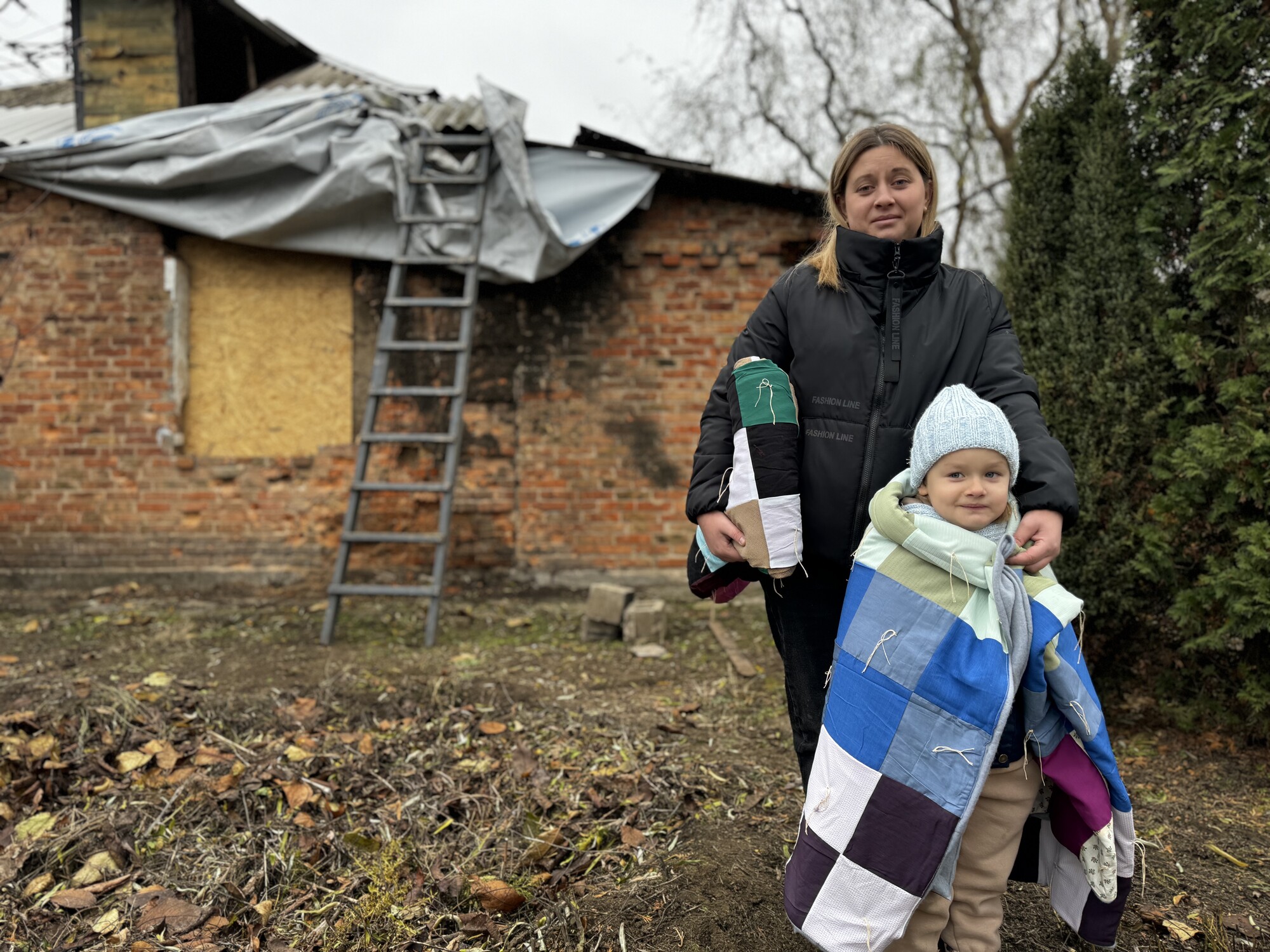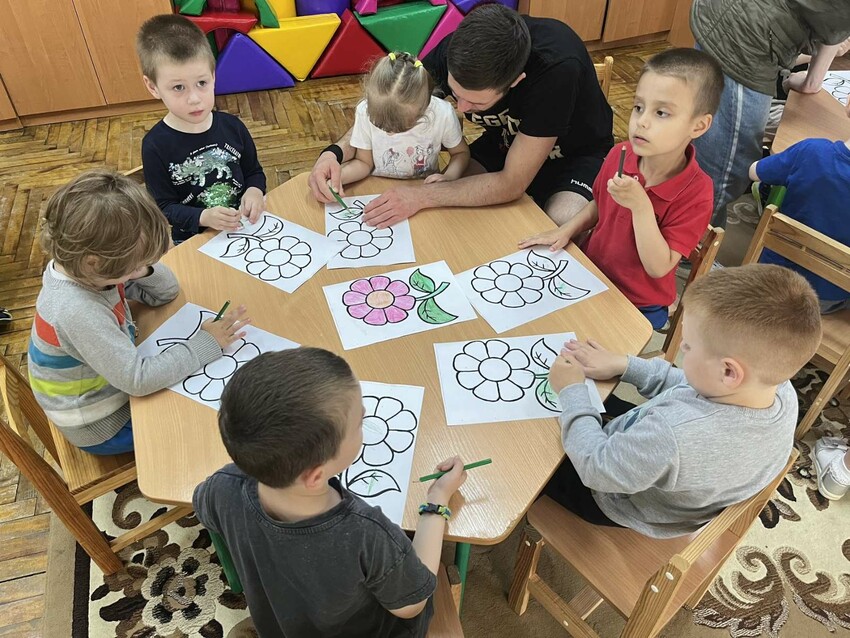MCC's work in Ukraine continues after two years of conflict

February 24 marks two years since the escalation of the war between Russia and Ukraine and the large-scale invasion of Ukrainian territory by Russian military forces. Since February 2022, Mennonite Central Committee has raised more than $14.4 (CAD 19.5) million for emergency relief response projects in Ukraine. And while there are no clear signs of a peaceful end to this conflict, neither are there signs of the end of MCC’s commitment to peace in the region.
Of that $14.4 million raised for Ukraine, more than $12.5 (CAD 16.9) million has been spent on program costs, locally purchased goods and material resources shipments to support more than 151,000 people. As of today, MCC has shipped 30 containers to Ukraine, including:
- 63,822 comforters
- 72,000 hygiene kits
- 25,339 relief kits
- 123,840 pounds of canned meat
Through the faithful support of MCC donors and the incredible work of MCC’s partners in Ukraine, we’ve seen 331,976 meals served to the hungry, 131,406 food packages distributed and 3,810 people provided with temporary shelter. It’s one of MCC’s most significant disaster responses, possible only because of generous donors and committed local partners.

MCC support helps partners carry on
Natalia* is a project coordinator for MCC partner Center for Social and Rehabilitation Assistance (RCL), based in Zaporizhzhia, a city just inside the territory currently controlled by Ukraine. RCL provides education, social support and resources for children with mental and physical disabilities. Natalia says without MCC’s support, they wouldn’t have been able to operate beyond the first few weeks of the invasion.
“Before, the parents paid some fees to cover the costs of our programs,” she says. “But when the war started, so many of the parents lost their jobs, the economic situation was very difficult. They couldn’t give money to education; they didn’t always have money even for food. We can only pay our teachers and social workers because MCC has increased its giving to us.”
Natalia came to RCL initially as a parent: her son has an intellectual disability and needed additional support when he started school. She eventually joined the staff and now coordinates programming for the 135 in-person students and approximately 40 learning online.
Two years ago, when the invasion began, Natalia fled the country with her sister, some friends and their children. They were able to cross the border in Poland and eventually found short-term shelter in a hotel for a few months. She would cross back into Ukraine to send money to her parents, who live near Zaporizhzhia and weren’t able to leave safely.
After nearly half a year, she decided to return home and continue her work with RCL, a move only possible, she says, because of MCC’s continued financial support of the project.

Support is needed more than ever
Other MCC partners continue to find ways to create safety, building and offering relief as the war continues: New Life Charitable Fund is distributing food and comforters, several MCC partners are providing support to help people deal with the trauma of war, and Uman Help Center is providing a wide variety of survival materials, like fuel and food to those who have need.
Through the uncertainty and risk, MCC’s local partners continue to do essential work that is valued by the communities they serve says Bruce Guenther, MCC’s director of disaster response.
“A group of external evaluators found that our responses provided food packages and other items that were of high quality, timely and met urgent needs, especially for vulnerable people who were not being supported by other organizations,” he says. But two years later the conflict continues and there are still significant needs. “Our partners are doing incredible work in conditions that continue to be difficult, and they still need your support more than ever.”
You can donate to MCC’s emergency response in Ukraine online here.
*Names shortened or withheld for security.
Top photo caption: Volunteers* with MCC partner KECB help distribute much-needed humanitarian assistance in a village in Ukraine's Kharkiv region. (Photo courtesy of KECB)

